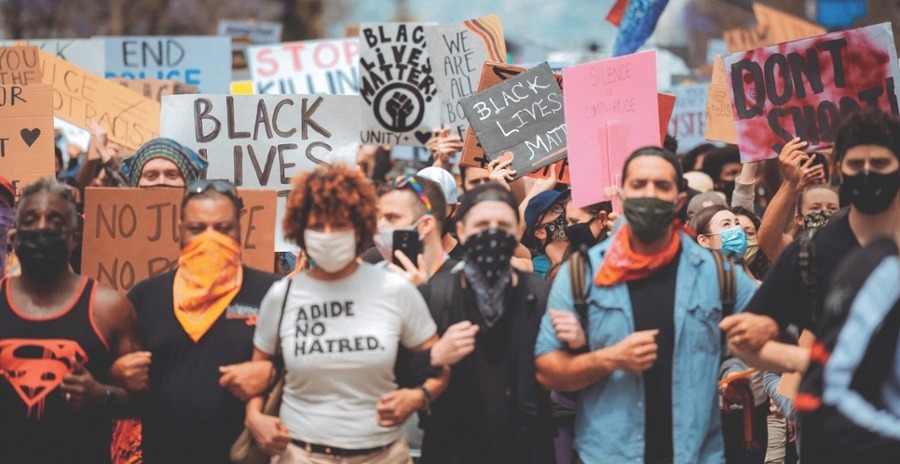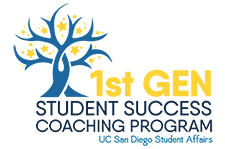Dismantling Anti-Blackness: Typology and Commitments for Student Success Programs

In June 2020, Student Success Programs team members collaboratively developed a set of commitments to combat anti-blackness. Informed by CORA learning's Addressing Anti-Blackness on Campus: Implications for Educators and Instititutions, we expanded our understanding of the section titled "Developing an Anti Blackness Framework." These domains were informed by Daryl G. Smith's "Diversity's Promise to Higher Education: Making it Work." Dr. Smith writes,
"Institutional capacity-building requires the creation of structures that serve institutional purposes and that connect the institution’score purposes with the needs of society. It involves allocating financial and other resources, as well as strengthening human capital, expertise, and culture. An institution’s capacity for diversity is measured in the way decisions are made, in how power is distributed, and in the characteristics of institutional culture. Though there may be a substantial cost in building capacity for diversity, there is also a substantial cost for neglecting it." (Smith, 2009, p.18)
We developed a typology to analyze and understand how our commitments fit into the varying domains. Our personal and professional commitments to be educators who are anti-racist and actively combatting anti-blackness will be ongoing. This landing page will provide insights to our collaborative and unit specific progress.
Commitments and Projects
This site was last updated: 02/28/22
Student Success Coaching Program
|
Climate/Culture |
Collaborate with BRC to provide coaching suports to students within their center on a regular basis. |
| Curriculum |
Incorporate social justice/diversity workshop requirements into the milestones Develop and deliver a workshop on educational inequity in the US- with a focus on access to higher education for first gen students. Deliver workshop each quarter |
| Privilege and Preference Systems - Hiring | Ensure we have a diverse student employee staff |
| Professional Development |
Identify training and developmental opportunities for staff on matters related to anti racism, anti blackness and intersectionality. Incorporate anti-racism, anti-blackness readings and ally trainings within peer coach training. |
Projects
The sections below highlight the projects Student Success Programs is currently working towards.
SSCP Milestones and Canvas Course
Goal: Prioritize Inclusion & Equity as an essential part of a student’s undergraduate experience, and provide students with guidance and direction on how they can participate in JEDI efforts, events, workshops at UC San Diego. Each existing milestone will have a section on JEDI approaches, frameworks and/or considerations.
Status: In-progress
SSCP Professional Staff Development
Goal: Identify training and developmental opportunities for staff on matters related to anti-racism, anti-Blackness, and intersectionality.
Status: In-progress
SSCP Collaboration with BRC
Goal: Supports the diversity and inclusion goals of the Student Success Coaching Program by collaborating with BRC to provide coaching support to students within their center on a regular basis.
Status: In-progressStudent Veterans Resource Center
|
Climate/Culture |
Implement strategies to support and challenge student growth & development around racial justice in informal (e.g. in daily conversations) and formal (e.g. training) ways |
| Curriculum |
Intentional use EDI PLO/SLO in our planning and implementation for each quarter. Create and incorporate learning activities re: social justice and racial equity during our Welcome Aboard/kick-off event. Review current materials and programs for opportunities to incorporate more specific info regarding our communities of color (e.g. during our ally training, include information on our communities of color and how our experiences after the military differ in some profound ways - access to benefits, resources, housing, etc.). |
| Privilege and Preference Systems - Hiring | Ensure we have a diverse student employee staff |
| Professional Development |
Create and incorporate EDI learning activities/training into our student staff yearly and quarterly training. |
Transfer Student Success
Transfer Student Success commits to maintaining an inclusive community by standing against racism, sexism, ableism, discrimination, and other systemic inequities by fostering an environment that is accessible, empathetic, and open-minded to every student's needs. Our expansive collaborations ensure we are well-informed, student-centered advocates on the cutting edge of support.
Our office adheres to this statement by continuously offering and improving the following commitments:
|
Communication |
Celebrate transfer student intersectionality within our marketing and social media efforts. |
|
Climate/Culture |
Collaborate with our brother and sister offices to host dialogues focused on the unique experiences within transfers’ intersecting and under-served identities. |
| Curriculum | Create advocacy training for peer coaches.
Enfold trainings on inclusive language, anti-racism advocacy and digital Blackface within our student trainings in Spring and Fall quarters |
| Privilege and Preference Systems - Hiring |
Incorporate inclusivity statement into student and professional hiring protocols. Ensure our student employee team is representative of the diversity of the transfer student body by implementing clear hiring and recruitment practices. |
| Policies/Practices /Procedures |
Ensure Triton Transfer Hub guidelines (for physical and digital spaces) promoting zero tolerance for racism, sexism, and prejudice. Incorporate guidelines within our newsletter for the campus community. Collaborate with Admissions and the Black Resource Center to ensure a clear pipeline of support for Black students who participate in the Umoja Program. |
| Professional Development |
Host advocacy and allyship training for peer coaches annually. |
Undocumented Student Services
|
Communication |
Actively and purposefully invite Black student community to engage in USS community events. Promote Black student initiatives through USS channels and space. Promote content that highlights intersecting identities of undocumented Black students through USS channels and space Demonstrate support for the Black community by sharing other relevant multimedia content through USS channels and space. |
|
Climate/Culture |
Adapt USS Community Guidelines (for physical and digital spaces) to create stronger “house rules,” promoting a zero-tolerance policy for racism, sexism, and prejudice. Incorporate this within our newsletter once per month as a reminder. |
| Privilege and Preference Systems - Hiring | Purposefully promote internship and volunteer opportunities with Black student communities and campus spaces. |
| Policies/Practices /Procedures |
Whenever possible, contract/purchase from small, minority-owned businesses. Purposefully conduct annually an evaluation of the unit’s efforts to dismantle anti-Blackness on campus. |
| Professional Development |
Identify training and developmental opportunities for staff on matters related to anti-racism, anti- Blackness, and intersectionality. Engage in recurring conversations with student staff on social justice issues impacting the Black, undoc, LGBTQ+ community; assign/encourage readings or documentaries that promote discussion and critical thinking. |
Past Projects
Spring 2021
In Spring 2021, Student Success Programs came together to receive a Train the Trainer workshop opportunity from Juan Carlos Carranza, Senior Success Coach and Tori Bussey-Neal, Success Coach on Digital Blackface. Colleagues reviewed these three articles and responded to the following guiding questions:
a. “We Need to Talk About Digital Blackface in Reaction GIFs” - Teen Vogue
b. “TikTok and the Evolution of Digital Blackface” - Wired
c. “What is Digital Blackface? Experts Explain Why the Social Media Practice is Problematic” - Women’s Health Magazine
Guiding Questions:
a. Define the following terms based on your best understanding of them:
i. Digital Blackface
ii. Anti-Blackness
iii. Racism
iv. Minstrelsy
b. What are the connections between Minstrelsy/Minstrel Performances and Digital Blackface?
c. What negative stereotypes are commonly perpetuated by the circulation of graphics that include Black individuals?
Winter 2021
In Winter 2021, Student Success Programs came together to provide progress to date on our commitments and to reflect on the personal development actions they plan to take as a result of reflecting on one of the articles or videos listed below. How to call out racial injustice at work
Is inclusion even possible? A conversation about race, class, and higher education.
What has higher education promised on anti-racism in 2020 and is it enough?
Insurrection and the Capitol: Justice and Reconciliation on our Campuses and in our Nation
Creating a More Racially Just Campus Environment at UC San Diego
The reflection and action prompts were:
What is one action you will take towards your personal development?
What are 1 - 2 actions you would like to bring into your work environment? What, if any, resources would you need to bring it to fruition?
Please see our responses here.
Fall 2020
- Are there strategic partnerships that can be enhanced, strengthened or formed based on the article?
- Of the themes which emerged under Ways Colleges Can Assist Students (Table 6), what are some ways UC San Diego is excelling? Where is there one opportunity for growth, and in what way (if at all) could our offices support in this area?
- One of the themes presented by the students for support from their college was to ""take a stand against racism and oppression"". Why is ""taking a stand"" important and what does this look like in the context of our roles in supporting students? Have we taken a stand yet, if so, how? If not, how do we?
- Top coping strategies included, ""distractions, social support, and talking."" How might our remote environment impact students from exercising these common strategies? Based on how our students have been interacting with remote learning thus far, how might we ensure students have the space and support to utilize these coping strategies?
In accordance with applicable Federal and State law and University policy, the University of California does not discriminate, or grant preferences, on the basis of race, color, national origin, religion, sex, disability, and/or other protected categories.
More information about Proposition 209 can be found here.
More information about the University of California Anti-Discrimination Policy can be found here.
